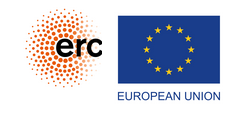Henry Mead gave a paper entitled ‘Disintegration of the Intellect: Crisis and Renewal in European Modernism’ at the ‘Humanity / Humanities’ April Conference at the Jagiellonian University in Krakow, Poland, on 21 April 2023.
Category Archives: Events
Tommaso Giordani on the French “social” Republic
On the 18 March 2023, Tommaso Giordani presented a paper entitled “Towards the ‘République sociale’: ideological interaction and social reform in the Third Republic” at the conference Boundaries and Encounters organized by the Society for French Historical Studies and the Western Society for French History held in Detroit, Michigan, USA. Further details can be found at https://www.sfhsconference.org/
Henry Mead on periodization in cultural criticism
Henry Mead gave a paper entitled ‘Dreams of Reconciliation: Periodization in Cultural Criticism’, at the ‘Periodization and Time in History: Perspectives from Germany, Europe and the Middle East’ conference at Pembroke College, Cambridge, on 30 March 2023.
Ksenia Shmydkaya on displacement
Ksenia Shmydkaya presented a paper at the conference Displacements: Women’s Transnational Trajectories & Artistic Experiences of Emancipation in Central Europe, organised by CEFRES, in Prague, on 16–17 March 2023. The title of her paper was “Roots of One’s Own: Stanisława Przybyszewska and Displacement as a Possibility for (Re)Creation.”
Ksenia Shmydkaya presented on Olga Forsh
Ksenia Shmydkaya gave a paper, entitled “Soviet Fiction, Soviet Values? Reading Olga Forsh’s Historical Novels Today,” at the Annual Historical Fictions Research Conference that took place online on 17–19 February 2023.
Zsófia Lóránd on Women’s Intellectual History in East Central Europe
We are hosting an open philosophy seminar, on November 8th (Tuesday), at 16.00-17.30 in room A 544. Dr. Zsófia Lóránd (University of Cambridge) will give a talk on “Women’s Intellectual History in East Central Europe: Sources and Canons”.
Women from East Central Europe have only rarely been presented as intellectuals, even less so as important political thinkers. However, women in this part of the world had been extensively reflecting on the socio-political reality they lived in, as well as envisioning ways to make society a better place for women. Women’s rights and feminism have therefore a long intellectual and political tradition in East Central Europe that needs to be explored and analysed. My talk will comprise of two parts. In the first part, I will zoom in onto some of the methodological issues and key findings in my research about feminism in Yugoslavia. In the second part, I will talk about my current work on collecting sources and writing a regional history of women’s political thought in East Central Europe.
Zsófia Lóránd is an intellectual historian of feminism in post-WWII state-socialist Eastern Europe. Currently she is a Marie Curie Fellow at the Faculty of History, University of Cambridge. Her book, The Feminist Challenge to the Socialist State in Yugoslavia was published in the Palgrave Macmillan series “Genders and Sexualities in History” in 2018. She got her PhD at the Central European University in Budapest and has held positions at the European University Institute in Florence and the Lichtenberg-Kolleg in Göttingen.
Everyone is warmly welcome!
Ksenia Shmydkaya on gendered epistemologies of literary criticism
Ksenia Shmydkaya participated in the three-days workshop Gendering Epistemologies – Gender and Situated Knowledge Perspectives from Central, Eastern and Southeastern Europe organised by the PECEE Research Group in Czechia on 13-15 October 2022. She gave a paper entitled “Woman’s metaphors and universal truths: on one episode in Poland’s interwar intellectual life.”
Ksenia Shmydkaya, ‘Revolution, She Wrote’: Thesis Defence, 7 November 2022
We are proud to announce that on November 7, 2022 at 11.00, Ksenia Shmydkaya will defend her doctoral thesis:
“Revolution, She Wrote: Historical Representation in the Interwar Works of Stanisława Przybyszewska, Sylvia Townsend Warner, and Olga Forsh”.
The public defence will take place in Tallinn University hall M648. The wider audience can follow the defence and ask questions from the degree applicant in Zoom.
Supervisors:
Liisi Keedus, Professor at Tallinn University
Julia Kuznetski, Professor at Tallinn University
Opponents:
Catriona Kelly, Honorary Professor at Cambridge University
Zsófia Lóránd, Marie Curie Fellow at Cambridge University
The doctoral thesis is available in Tallinn University Digital Library ETERA.
Ksenia Shmydkaya on the Polish debates about the French Revolution
Ksenia Shmydkaya presented parts of her doctoral research, under the title “Debating the French Revolution in Interwar Poland: The Danton Case and Its Echoes,” at the Annual Conference of the International Society for Intellectual History. The Conference, dedicated to Histories of Knowledge, took place at Ca’ Foscari University of Venice, on 12–15 September 2022.
Tommaso Giordani on Solidarisme
Dr. Tommaso Giordani presented his research on French solidarisme and the ideological beginnings of the French welfare state on the 25 of August 2022, in Helsinki, at the conference In Search of the Common Good, organized by the European Society for the History of Political Thought.
More information can be found here.


